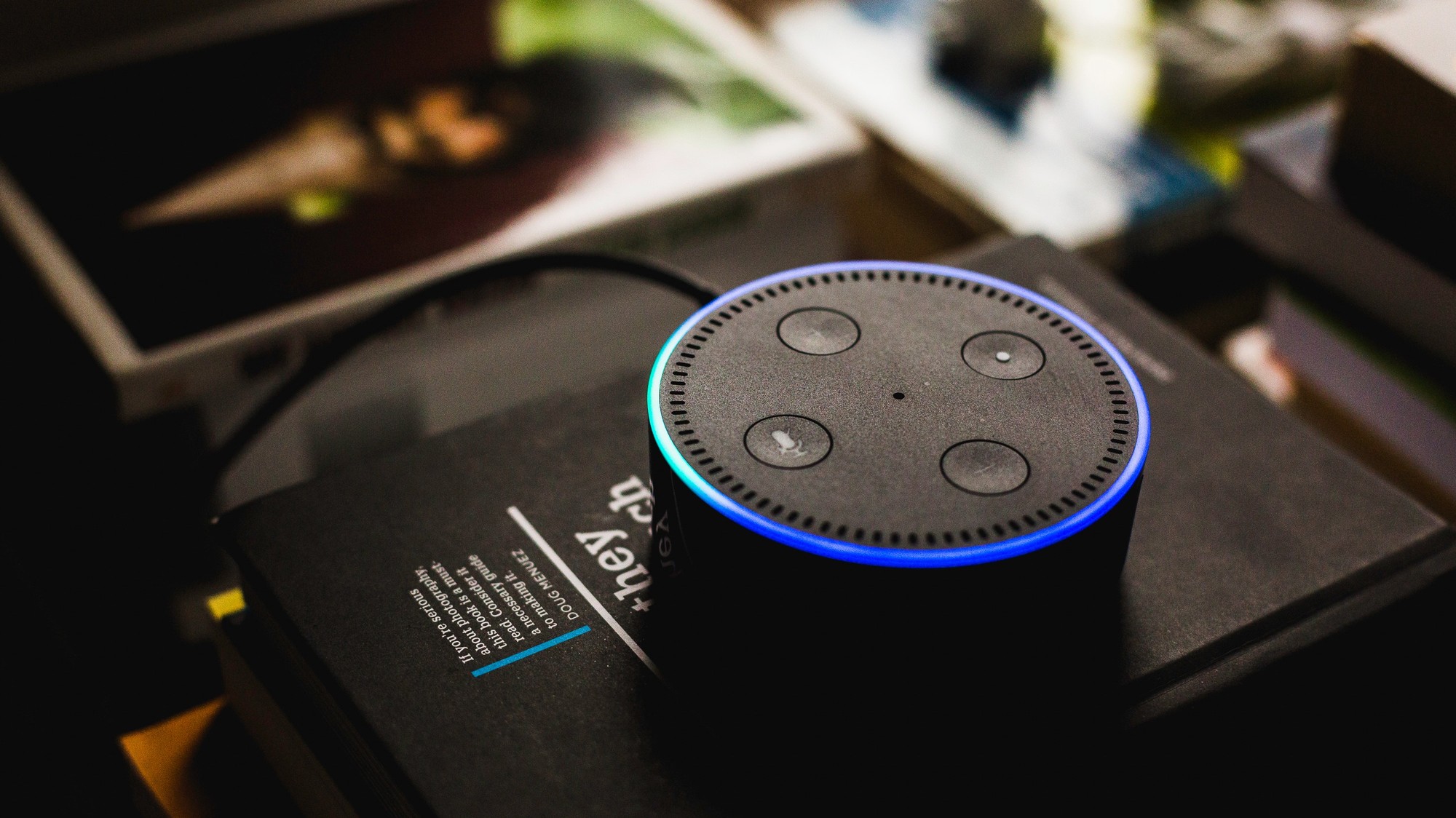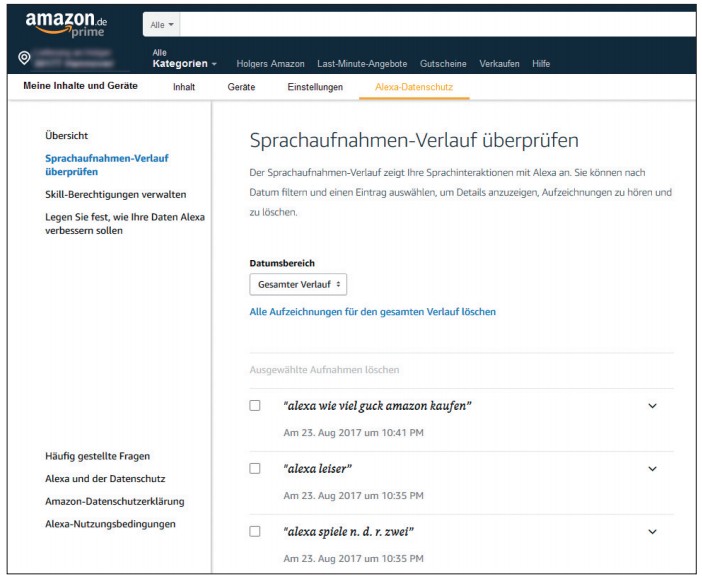Amazon sent Alexa's 1,700 audio recordings to a random person.

The right to privacy, the protection of private information are becoming more and more important aspects of our life every year. There are tools to protect private data, they gradually become more complex and reliable. However, they do not always help, there are situations that make all protective measures useless.
And this is not about evil cybercriminals who are able to overcome any obstacles. Sometimes Internet user data is made available to random people by mistake. This is exactly what happened with 1,700 audio recordings from Alexa devices owned by a single user, which Amazon sent to a third-party person. We are talking about the audio files of one user who fell (randomly) into the hands of another.
The other day, the German edition of Holger Bleich said that a user of Amazon services suddenly received from the company a whole set of third-party audio recordings. Among them were audio, made during the adoption of the affected water procedures. According to the journalists of the publication that published the story, you can easily determine the user's occupation, preferences and habits using these files.
')
“The alarm clock, Spotify commands, taxi call requests - all this was contained in the package of audio recordings that the person who wrote to us received,” the article says. "Using these files, you can easily determine the occupation of the user, his name, as well as the identity of his girlfriend and acquaintances," - told reporters. Information that can be obtained from Facebook and Twitter user complements this picture.
As compensation, Amazon provided the victim with a subscription to Amazon Prime, plus Echo Dot and Spot devices.

After all this became known, articles appeared on the web about the importance of protecting the information of network users and their right to privacy. All this is true, but the problem is not with the law and its violation. The real problem is not very good protection of Internet devices with which an attacker can learn everything about the privacy of the owner.
As for Amazon, it’s possible to solve the audio problem by setting a limit on how long the files are stored. It is unlikely that someone will need their notes with questions like "what time is it", "who is now the president of Uruguay", etc. a week after saving the file. By the way, the incident in question is not the first. Earlier this year, a conversation between two Amazon service users was sent to a random contact from their contact list. This is because Alexa incorrectly recognized the command and performed what was “heard”.
By the way, Alexa can receive information about users not only from home. Not so long ago, Amazon introduced the service " Alexa for Hospitality ", which operates in hotels. To do this, the room is set to compatible with Alexa device, which is in active mode. It is managed in much the same way as Echo or other gadgets of this type. What distinguishes it from home devices is that the hotel cannot get a complete set of user data, based on what he did in the room during his stay in it. The hotel (and hence its commercial partners) receives only limited information.
However, Amazon gets the full set of all user requests. So, the company now has data not only about consumer preferences of the user, his tastes in the world of literature or films, but also about "hotel" preferences. Perhaps the company itself does not use private data, but what if a major leak happens?
Creating a new service is positioned as an opportunity to feel everywhere at home. After all, a user of Amazon and Alexa, who has an account, receives a “home” service, since Alexa for Hospitality provides access to services that are familiar to this user. On the other hand, not for all this option is suitable. One can imagine how a person who has worked hard for a year goes on vacation. And here, in a hotel, a service that has access to all of its data suddenly begins to resemble business meetings, tasks, and other routine activities. The prospect is so-so.
In a general sense, the digitalization of our life can hardly be stopped, since services and gadgets like Alexa, Echo, etc. penetrate deeper into our lives.
Source: https://habr.com/ru/post/434062/
All Articles